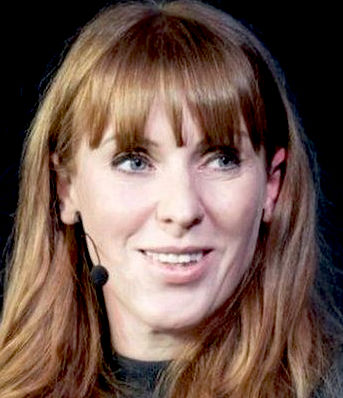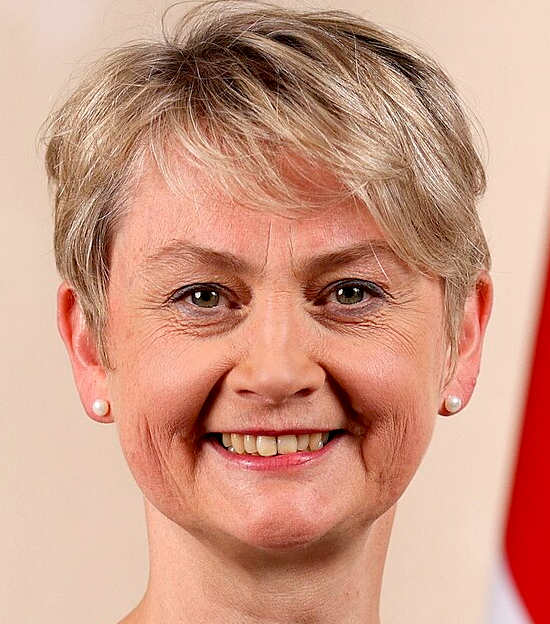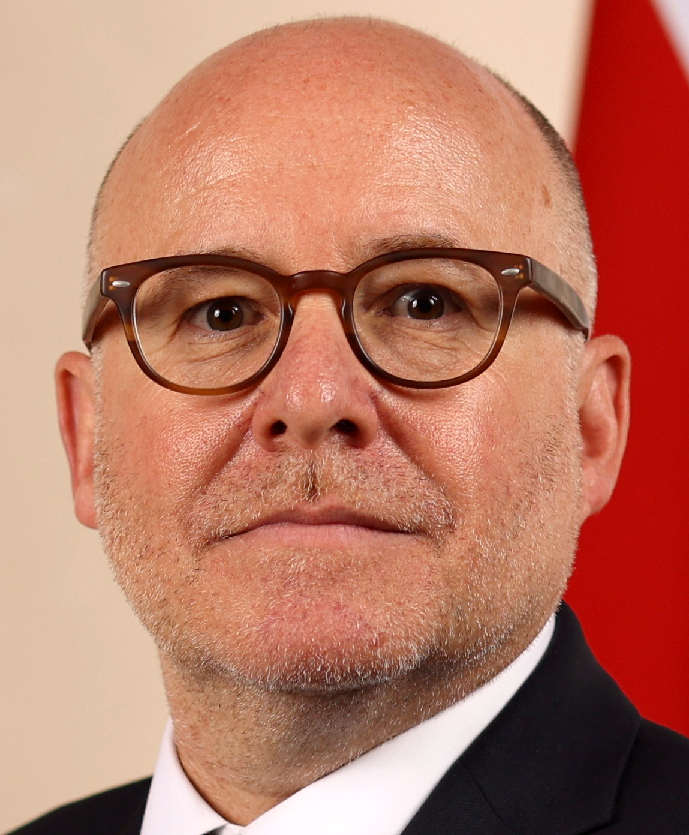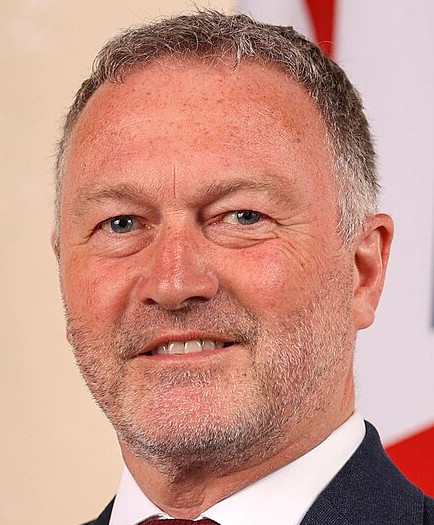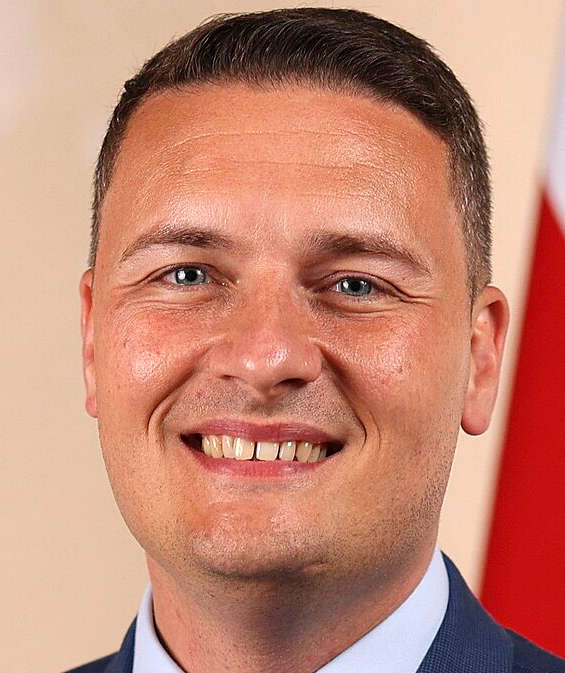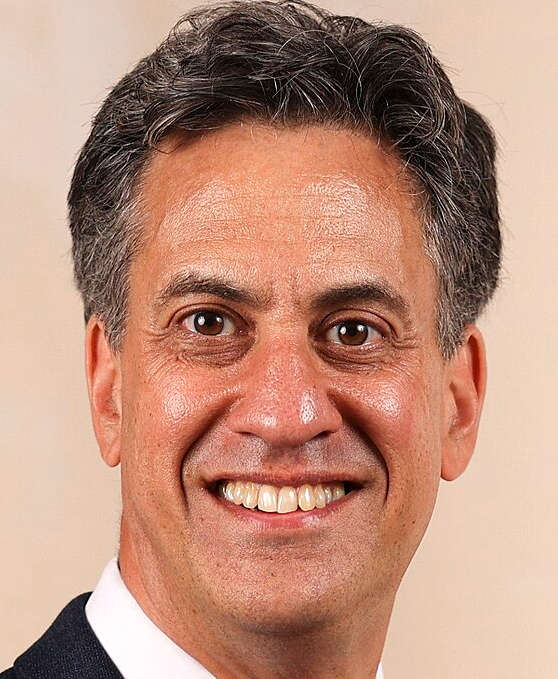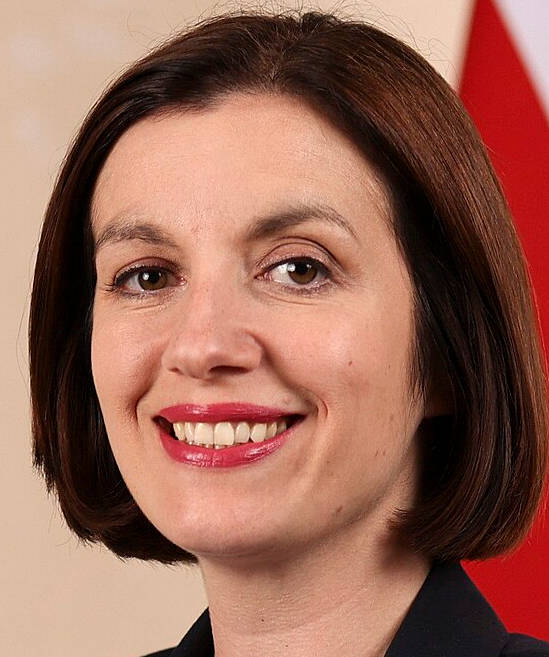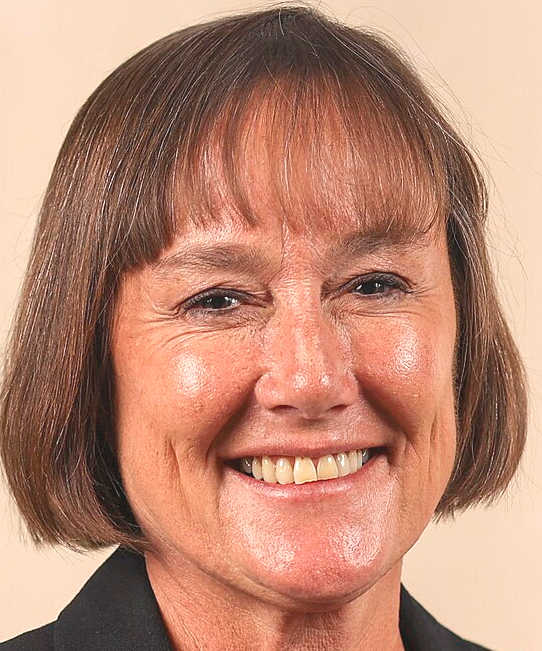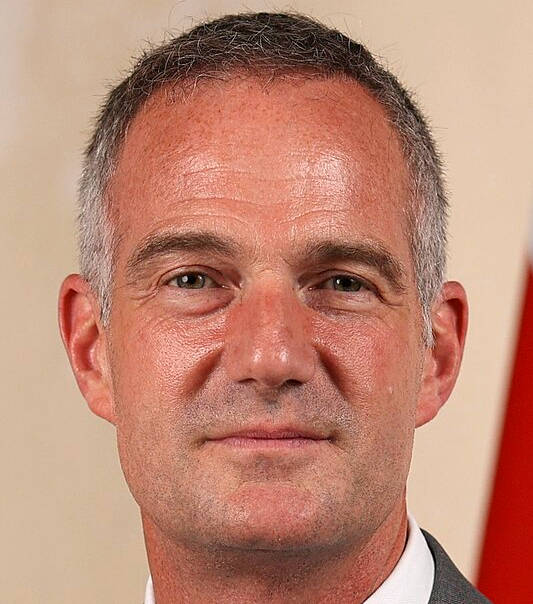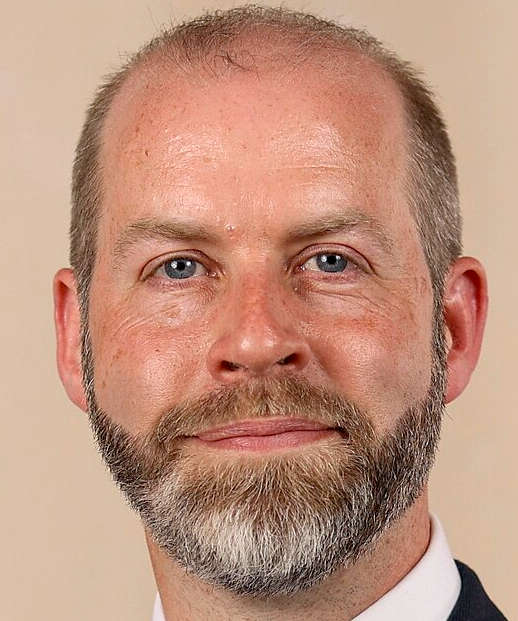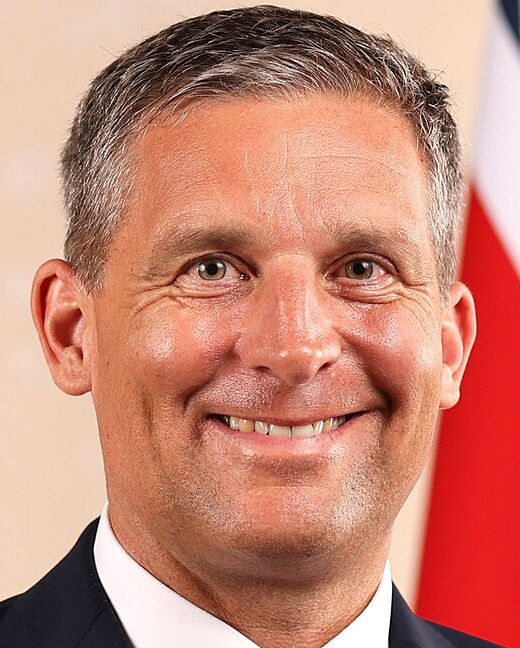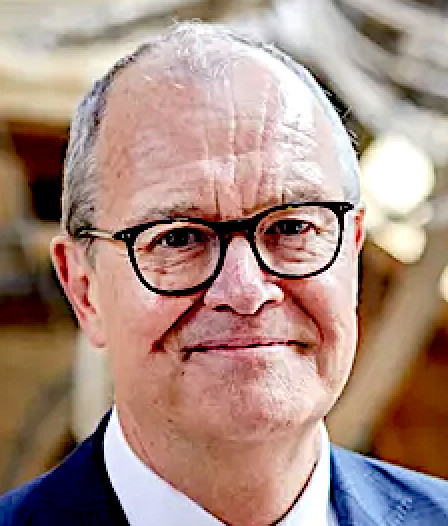
Lisa
Nandy - Culture Secretary
LISA NANDY
Lisa Nandy has been appointed as the new
Culture Secretary. The role had been earmarked for
Thangam Debbonaire before she lost her seat to the Greens in Bristol.
The Culture Secretary has one of the most diverse jobs in Whitehall, which includes negotiation of the
BBC licence fee agreement every five years.
A fee that is unlawful in Human Rights terms.
In opposition, Ms Nandy had been shadow international development secretary. Four years ago, she blamed the Tories under
Boris Johnson for fostering an “anti-media and
anti-BBC
[British Brainwashing (bullshit)
Corporation] feeling” on social media by threatening to scrap the licence
fee, itself an Article
9 and 10 infringement (right
to receive information and impart ideas - freedom of speech).
Whereas the British Broadcasting Corporation is seen by many to be and
alleged to be a state sponsored propaganda organization. In that they do
not cover contentious issues involving the State, until forced to do so
by other news agencies. The Post
Office Horizon scandal being just one such example. Hence, the BEEB
are part of the whitewash system, stemming from Slavery and
British
Empire days, when it was acceptable to keep citizens in the dark.
Covering news items selectively to paint a rosier picture, using tax
payers money.
Lisa Nandy was appointed Secretary of State for Culture, Media and
Sport on 5 July 2024. She was elected as the MP for Wigan in July 2024.
Previous holders of this role was the Rt Hon Lucy Frazer KC from 2023 to 2024, who failed to respond to correspondence about heritage and corruption in local government.
Allegedly thinking to leave to Labour, as yet more issues unattended -
as with many other MPs, just going through the motions.
THE GUARDIAN 9 JULY 2024 - NANDY WASN'T SUPPOSED TO HEAD UP CULTURE, BUT COULD HER LEVEL-HEADED APPROACH BE JUST THE TICKET?
Of all those in Keir Starmer’s new cabinet, Lisa Nandy is the anomaly. Unlike most of her colleagues, who have been appointed straight from shadow roles, the culture secretary has not had months – or, in the case of Yvette Cooper, many years – to prepare.
Nandy has been appointed to the position out of the blue after Thangam Debbonaire, the former shadow culture secretary, lost her Bristol Central seat to the Greens in Thursday’s general election. Debbonaire, a former professional cellist, had an instinctive grasp of the arts portion of the brief, and was poised to embark on what she described as her dream job.
Nandy, whose most recent position has been as shadow international development minister, will have her work cut out to catch up. She will be keen to make a success of a delicate role that, although it may appear to be low down the governmental pecking order compared with health or justice or the great offices of state, is of huge importance. It deals with how the country understands and expresses itself; how individual citizens discover their voices and reach their true potential; how the UK is seen overseas; how towns and cities thrive and find their identity. In short, the culture brief deals, like no other role, with the soul of the country.
In practical terms, there will be many priorities in the short and medium term. In media, there will be the renewal of the BBC’s charter to attend to in 2027, as well as questions over press regulation and Ofcom (which quickly needs to start doing its job properly in relation to, for example, the serial broadcasting rule-breaker GB News). There is the question of football governance and grassroots sport. Nandy’s role also encompasses an unusual number of independent public appointments, overseen by the Department for Culture, Media and Sport – appointments that the Tories have politicised and corrupted during their period in power. Labour needs to resist the temptation to continue the trend towards inserting cronies into public positions, instead reasserting the integrity and independence of the appointment processes (one prominent open position is the chair of the V&A).
And then there is the entire landscape of art and culture in England. The most obvious and pressing problem is a collapse in public funding from central government and local authorities. While brimming with ambition and talent, the arts are running on empty, with failing infrastructure diminishing the ability to take the artistic risks that bring the greatest rewards, and reduced capacity to infuse lives with the enormous benefits that contact with the arts can bring.
Nandy will need to argue tooth and nail with the chancellor for the small amounts of money, relative to overall public expenditure, that will make a difference. The UK’s arts funding has historically run on a mixed economic model, between the poles of the US (which runs on private philanthropy) and European neighbours such as
Germany and France (where the arts receive generous public support). In recent years, the UK’s model has become unbalanced. With public funding falling away, arts organisations have become increasingly reliant on private sponsorship. But corporate and philanthropic sponsorship is coming under public scrutiny as never before on moral and ethical grounds – take the outcries against support for the arts from BP, the fund manager Baillie Gifford and the Denise Coates Foundation (created by the owner of the online gambling firm Bet365). Arts organisations, in short, have been put in an impossible position. The way to solve it is to check the creeping privatisation of culture in England and to reassert public accountability of the arts.
Calming the divisive and pointless culture wars that the Conservatives have fomented will, happily, come naturally to someone as level-headed as Nandy. Part of that will mean approaching the BBC as a huge national asset that is to be treated sensibly – though not uncritically – rather than publicly lashing out at it for cheap political advantage, as the Tories did. It will also mean not making enormous, irreversible decisions on matters such as whether to continue the licence fee – currently an open question for Labour – on narrow ideological grounds. The BBC needs to be properly funded and supported to speak to all Britons, bringing the nations together and acting as a great counterbalance to cultural and social fragmentation. At the same time as tamping down the culture wars, Nandy needs to resist succumbing to the anxiety of the previous New Labour generation that the arts and culture are somehow intrinsically elitist. It’s Labour’s job and destiny to make sure, after all, that they are not. As the deputy prime minister, Angela Rayner, brilliantly put it after she was sneered at by Dominic Raab for attending a performance of Mozart’s The Marriage of Figaro a couple of years ago: “Never let anyone tell you you’re not good enough.”
Starmer has signalled that he wants stability and his cabinet members in post for a long time. That is good news for the country when the role of culture secretary has been tossed about on the storms of political instability for years, with 12 Conservatives occupying the post since 2010. Though the need for change is urgent, Nandy will have time to assemble the best team, and to listen to the many expert people working on the ground. At her back she will have a prime minister who, unlike many of his predecessors, genuinely cares about the arts; as a talented flautist, Starmer attended the Guildhall School of Music and Drama’s Saturday school as a boy, and has spoken unembarrassedly about the transformative power of music in his own life.
Nandy will have much to read, but she could do worse than starting with the pioneering arts minister Jennie Lee’s 1965 white paper on the arts. The language may be dated, but the overarching sentiment is evergreen and Labour to the bone. “In any civilised community the arts … must occupy a central place. Their enjoyment should not be regarded as something remote from everyday life.” The joy, the excitement of the arts, Lee argued, had to be there for everyone, in all parts of the country. For Nandy, there is much to do – and no reason to doubt that she is the woman to do it.

FOSSIL
FOOLS - Geriatric politicians with 'climate-senile' policies will
find in difficult to break away from their corrupt ways, as part time
politicians with two jobs. Their main job being to find paid consultancy
work, rather than craft policies and create statute that works to
protect our voters from lung
cancer, energy shortages and a lack of affordable (sustainable)
housing.
The
'zerophobics' are the undertakers of the political world, sending
millions of ordinary people to an early grave, while loading us with NHS,
hospital and staff costs that would not be needed if we had clean air in
our cities.
Basically,
the longer you are in politics, the more likely you are to be exposed to
bribes, from climate
deniers, mostly fossil fuel and energy companies, looking to keep on
pumping toxic fumes into the atmosphere, so they can keep making money.
The political undertakers are working with them to keep hospitals
stocked with cancer victims, adding to the £Trillions we owe as part of
the national debt. Under Boris and Rishi Sunack, pensioner's saving have
halved in real terms. They are blood sucking vampires, draining what
little you had saved for your retirement.
CONTACT
SIR KEIR & HIS CABINET
Westminster Office
House of Commons
London, SW1A 0AA
Tel: 020 7219 5437
SIR
KEIR STARMER'S LABOUR PARTY CABINET 2024
UK
POLITICS
CONSERVATIVE
PARTY
CO-OPERATIVE
PARTY
DEMOCRAT
UNIONIST PARTY
GREEN
PARTY
LABOUR
PARTY
LIBERAL
DEMOCRATS
PLAID
CYMRU
REFORM
UK
SCOTTISH
NATIONAL PARTY
SINN
FEIN
SOCIAL
DEMOCRATIC AND LABOUR PARTY
UK
INDEPENDENCE PARTY
ULSTER
UNIONIST PARTY
LINKS
& REFERENCE
https://www.



